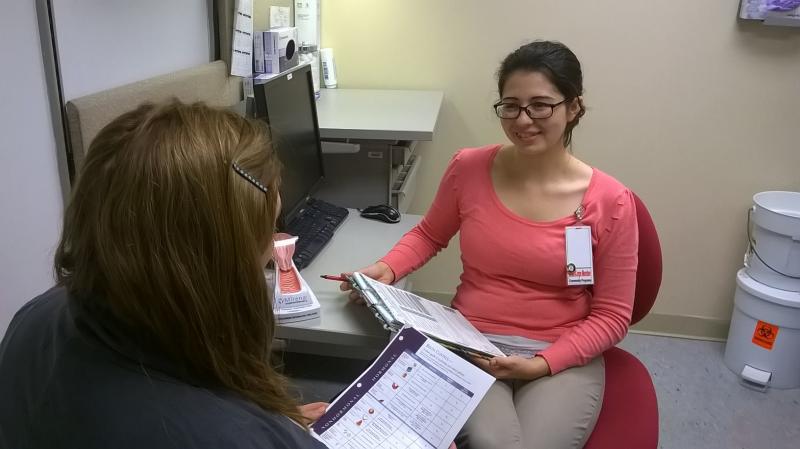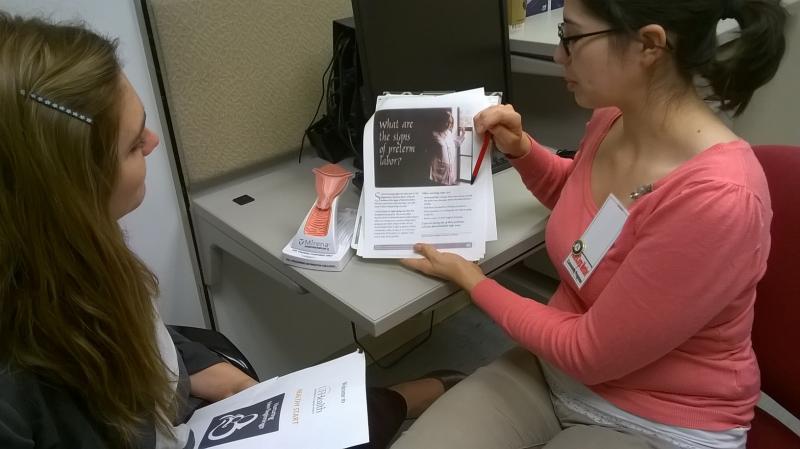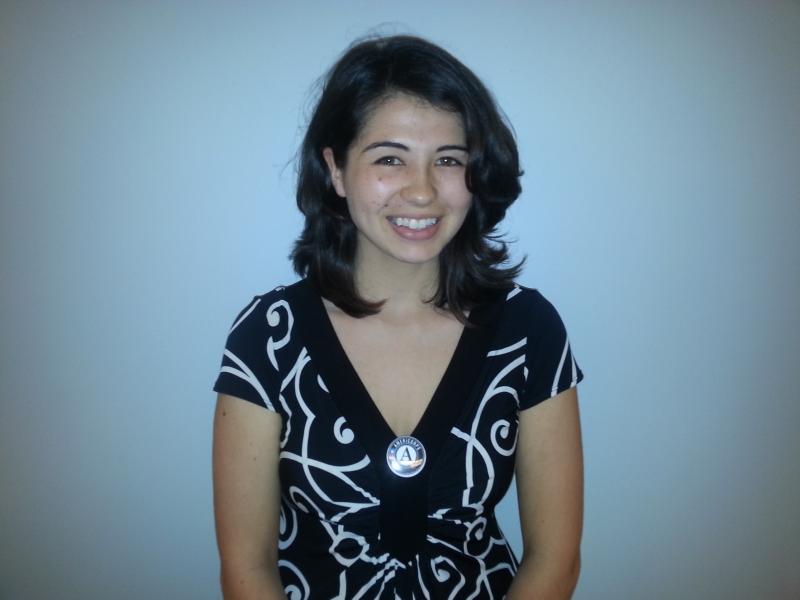Supporting Teen Mothers to Reach Their Goals
 I was reading over a Healthy Start Prenatal Risk Screen, when I noticed the client’s date of birth. I looked up from the questionnaire and I was face-to-face with a 13 year old girl. During my days in the UF Health Obstetrics clinic I have conducted initial contacts with clients facing barriers to a healthy pregnancy before, but none affected me the way that this young mother did. Her situation had such an impact because her biggest risk factor was her age, and the idea of pregnancy at her age was a tangible fear for me because I became sexually active at a young age. Under different circumstances I may have been the one to complete the screen. As a teen parent, she will face more barriers than her peers, but the services offered through Nurse-Family Partnership will help her take these challenges head on.
I was reading over a Healthy Start Prenatal Risk Screen, when I noticed the client’s date of birth. I looked up from the questionnaire and I was face-to-face with a 13 year old girl. During my days in the UF Health Obstetrics clinic I have conducted initial contacts with clients facing barriers to a healthy pregnancy before, but none affected me the way that this young mother did. Her situation had such an impact because her biggest risk factor was her age, and the idea of pregnancy at her age was a tangible fear for me because I became sexually active at a young age. Under different circumstances I may have been the one to complete the screen. As a teen parent, she will face more barriers than her peers, but the services offered through Nurse-Family Partnership will help her take these challenges head on.
Before becoming a North Florida Health Corps member, I was unsure of what Nurse-Family Partnership was. I understood it was a program offered to first-time moms following the Healthy Start Prenatal Screen, but I didn’t know what all it entailed. Now that I am a few months into my service, I have seen that Nurse-Family Partnership makes a huge difference in the lives of the women and babies enrolled in the program.

Nurse-Family Partnership empowers first-time mothers through support and education. As it pertains to teenage pregnancy, young mothers participating in the Nurse- Family Partnership program are more likely to pursue and succeed in their education and career goals than mothers who are not in the program3. Another issue that Nurse Family Partnership addresses is repeat teen births. 1 in 5 teen mothers will become pregnant again within one year following their first pregnancy1. However, mothers enrolled in the program are shown to wait on average at least two years before their second pregnancy2. I used to view teen pregnancy as a death sentence. If I had met the 13 year old mother-to-be before becoming a North Florida Health Corps member, I would have said there was no hope for her. After learning about the resources available through Nurse- Family Partnership and the results that have come from mothers participating in the program, I know that she can achieve the goals that she has made for herself and the goals that she will make for her child. Not to say that teen pregnancy is a positive occurrence, but partnering with this program has shown me that with the right support and education, teen mothers can still succeed.
References:
1."CDC Vital Signs: Preventing Repeat Teen Pregancies." Center for Disease Control and Prevention. Center for Disease Control and Prevention, 2 Apr. 2013. Web. 24 Nov. 2014. http://www.cdc.gov/vitalsigns/pdf/2013-04-vitalsigns.pdf>
2.Olds D, Henderson C, Tatelbaum R, Chamberlin R. Improving the life-course development of socially disadvantaged mothers: a randomized trial of nurse home visitation. Am J Public Health 1988: 78(11):1436-1445.
3.Olds DL, Kitzman H, Cole R, Hanks C, Sidora-Arcoleo K, Anson E, Luckey DW, Knudtson MD, Henderson CR, Bondy J, Stevenson A. Enduring effects of prenatal and infancy home visiting by nurses on maternal life-course and government spending: Age-12 follow-up of a randomized trial. Arch Pediatr Adolesc Med 2010: 164(5):419-424.

This post was written by NFHC member Emily Ayers.
Emily serves at UF Health-Healthy Start as the Women's Services Outreach Associate.